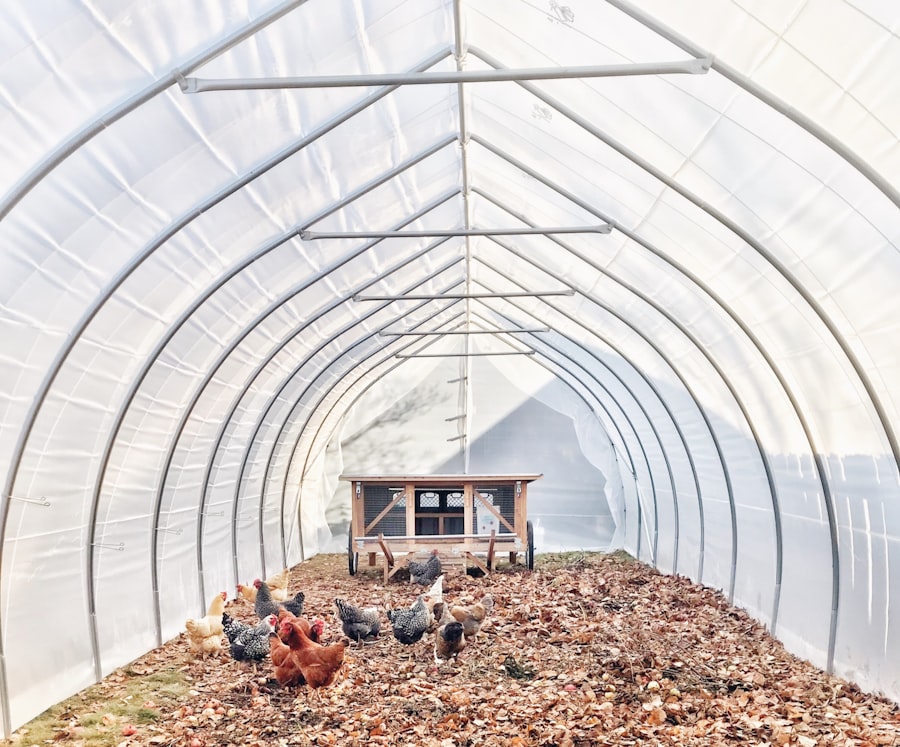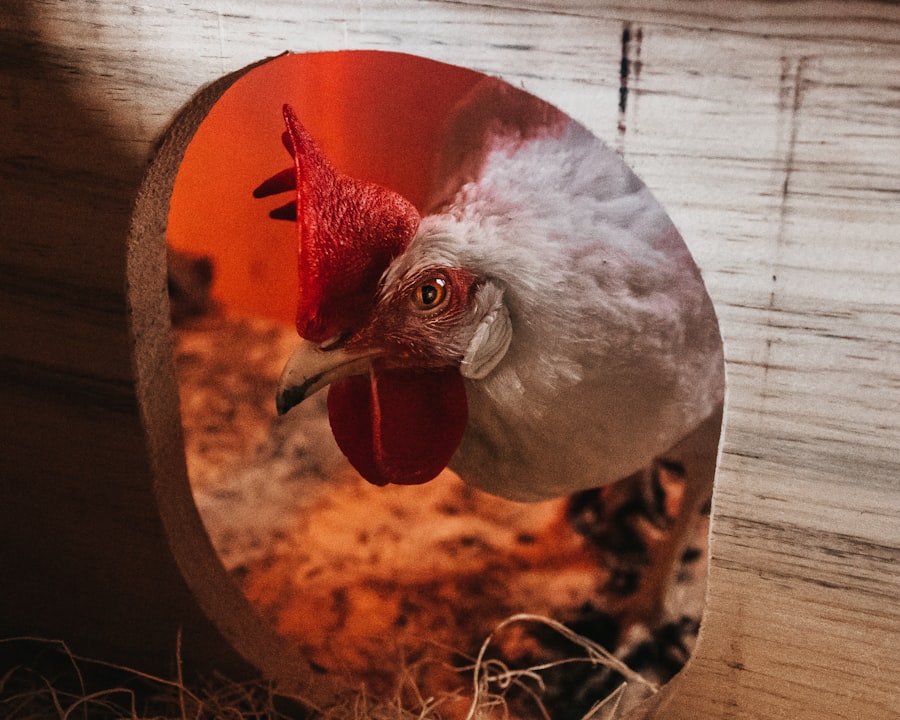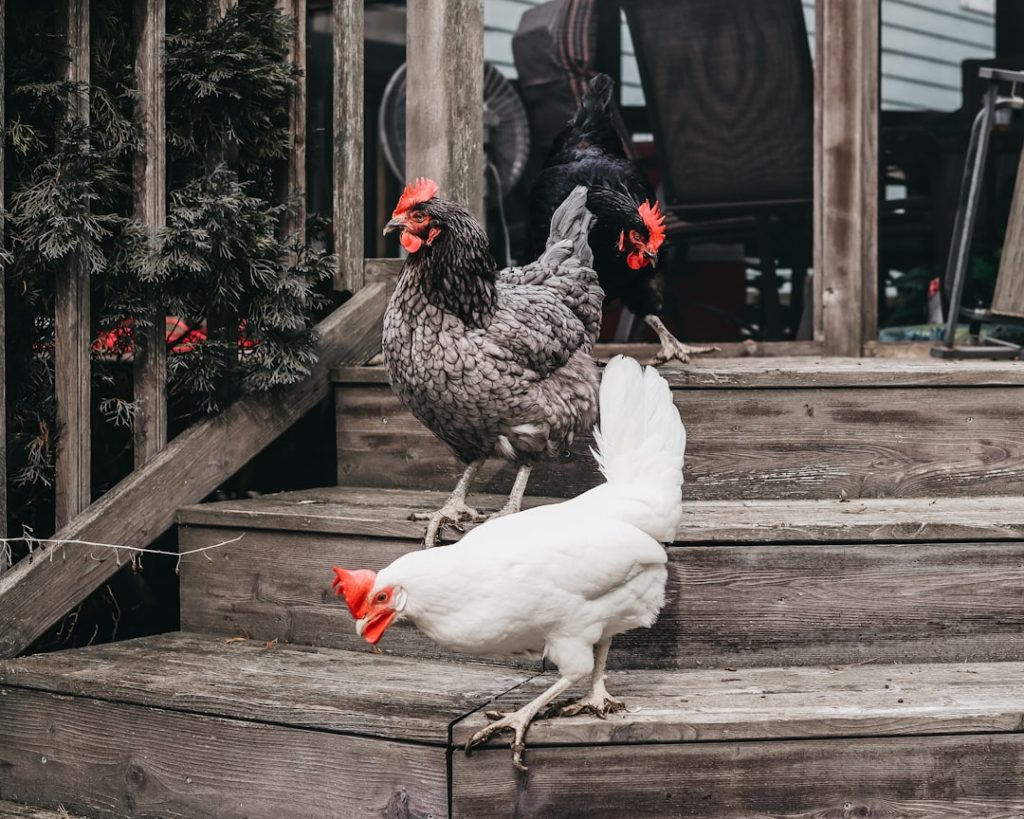When addressing complaints about noise from backyard chickens, it is essential to consider the neighbors’ perspective. Constant clucking, crowing, and wing flapping can disrupt peace and quiet. Odors from chicken coops and the potential for pests may also cause frustration.
These factors can significantly impact the quality of life for nearby residents. Local regulations and ordinances regarding backyard chickens play a crucial role in understanding the validity of complaints. Many areas have specific rules governing the number of chickens allowed, coop placement, and noise restrictions.
Familiarity with these regulations is necessary to address issues appropriately. The potential impact on property values and neighborhood harmony should also be taken into account. These factors can contribute to the seriousness of complaints and may affect long-term community relationships.
Understanding and addressing these concerns is vital for maintaining a positive living environment for all residents.
Table of Contents
- 1 Addressing the issue
- 2 Making necessary changes
- 3 Communication with neighbors
- 4 Implementing noise reduction strategies
- 5 Ensuring proper care for the chickens
- 6 Seeking professional advice
- 7 FAQs
- 7.1 What are some common complaints about keeping chickens?
- 7.2 How can I address noise complaints from neighbors about my chickens?
- 7.3 What can I do to minimize odor from my chicken coop?
- 7.4 How can I prevent attracting pests while keeping chickens?
- 7.5 Are there any local regulations or ordinances I need to be aware of when keeping chickens?
Key Takeaways
- Understanding the complaint: Listen to the specific concerns of neighbors and understand the impact of noise on their daily lives.
- Addressing the issue: Take immediate steps to reduce noise levels and minimize disturbances to neighbors.
- Making necessary changes: Implement changes such as adjusting coop placement or adding soundproofing materials to reduce noise.
- Communication with neighbors: Keep an open line of communication with neighbors to address any ongoing concerns and maintain a positive relationship.
- Implementing noise reduction strategies: Explore options such as using quieter equipment or creating barriers to minimize noise transmission.
Addressing the issue
Addressing the Concerns
Once you have a clear understanding of the complaint and its implications, it’s essential to address the issue in a proactive and respectful manner. This may involve having a candid conversation with the neighbors to express your understanding of their concerns and your willingness to find a solution. It’s crucial to approach the situation with empathy and a genuine desire to resolve the issue amicably.
Preventing Future Disturbances
In addition to addressing the immediate concerns, it’s vital to take steps to prevent future disturbances. This may involve making adjustments to the chicken coop to minimize noise and odor, as well as implementing strategies to mitigate the impact on neighboring properties.
Demonstrating Responsibility
By taking proactive measures to address the issue, you can demonstrate your commitment to being a considerate and responsible neighbor. This not only helps to resolve the current issue but also fosters a positive relationship with your neighbors in the long run.
Making necessary changes

In response to the complaint about noise from backyard chickens, it may be necessary to make changes to the chicken coop and its surroundings to minimize disturbances to neighbors. This could involve installing soundproofing materials in the coop, such as insulation or acoustic panels, to reduce the transmission of noise. Additionally, implementing measures to control odor, such as regular cleaning and proper waste management, can help alleviate concerns about the impact on air quality.
Furthermore, it may be beneficial to consider relocating the chicken coop to a more secluded area of the property, away from neighboring homes. This can help minimize the direct impact of noise and odor on nearby residents, while still allowing you to enjoy the benefits of keeping chickens. By making these necessary changes, you can demonstrate your commitment to being a considerate neighbor and address the concerns raised by those affected by the presence of backyard chickens.
Communication with neighbors
Effective communication with neighbors is essential when addressing complaints about noise from backyard chickens. It’s important to approach the conversation with empathy and a willingness to listen to their concerns. By acknowledging their perspective and expressing a genuine desire to find a solution, you can build trust and demonstrate your commitment to being a responsible neighbor.
In addition to addressing the immediate concerns, ongoing communication with neighbors can help foster a sense of understanding and cooperation. This may involve providing regular updates on the steps being taken to minimize noise and odor from the chicken coop, as well as being open to feedback and suggestions for improvement. By maintaining open lines of communication, you can work together with your neighbors to find a mutually acceptable resolution to the issue.
Implementing noise reduction strategies
In response to complaints about noise from backyard chickens, it’s important to implement effective noise reduction strategies to minimize disturbances to neighbors. This may involve making adjustments to the chicken coop, such as adding soundproofing materials or modifying the layout to reduce noise transmission. Additionally, implementing measures to control crowing and clucking behavior, such as providing enrichment activities and ensuring adequate space for the chickens, can help reduce overall noise levels.
Furthermore, it may be beneficial to establish quiet hours for the chickens, during which noise is minimized to avoid disturbing neighbors during sensitive times, such as early morning or late evening. By implementing these noise reduction strategies, you can demonstrate your commitment to being a considerate neighbor and address concerns about the impact of backyard chickens on neighborhood peace and quiet.
Ensuring proper care for the chickens

Proper Care for Backyard Chickens: A Key to Harmonious Coexistence
Ensuring the Well-being of Your Chickens
In addition to addressing complaints from neighbors, it’s essential to ensure proper care for the backyard chickens to promote their well-being and minimize disturbances. This may involve providing adequate space, shelter, and enrichment activities for the chickens to reduce stress and prevent excessive noise and disruptive behavior. Additionally, ensuring a balanced diet and regular health checks can help maintain the overall health and contentment of the chickens.
Environmental Factors and Chicken Behavior
Furthermore, it’s crucial to consider the impact of environmental factors on chicken behavior and noise levels. Providing a calm and secure environment for the chickens, free from potential stressors such as predators or excessive confinement, can help promote a quieter and more harmonious living situation for both the chickens and neighboring residents.
Prioritizing Proper Care for a Positive Coexistence
By prioritizing proper care for the chickens, you can promote a positive coexistence with your neighbors and address concerns about noise and disturbances. By doing so, you can create a peaceful and enjoyable living environment for everyone involved.
Seeking professional advice
In some cases, seeking professional advice from experts in animal behavior or backyard chicken care may be beneficial when addressing complaints about noise from chickens. These professionals can provide valuable insights into effective strategies for minimizing noise and disturbances from backyard chickens, as well as offer guidance on best practices for promoting the well-being of the chickens. Additionally, consulting with local authorities or animal control agencies can provide valuable information on relevant regulations and ordinances regarding backyard chickens, as well as guidance on best practices for addressing complaints from neighbors.
By seeking professional advice, you can gain access to valuable resources and expertise that can help you effectively address concerns about noise from backyard chickens and promote a positive relationship with your neighbors. In conclusion, addressing complaints about noise from backyard chickens requires empathy, proactive measures, effective communication with neighbors, and a commitment to ensuring proper care for the chickens. By understanding the concerns of neighbors and taking steps to minimize disturbances through noise reduction strategies and professional advice, you can promote a harmonious coexistence with your neighbors while still enjoying the benefits of keeping backyard chickens.
If you’re looking for more information on keeping chickens, you might be interested in this article on where to put a chicken coop. It offers helpful tips on finding the best location for your coop to ensure the health and happiness of your chickens.
FAQs
What are some common complaints about keeping chickens?
Some common complaints about keeping chickens include noise, odor, and potential for attracting pests such as flies and rodents.
How can I address noise complaints from neighbors about my chickens?
To address noise complaints from neighbors about your chickens, you can consider keeping only a small number of hens, providing them with a quiet and comfortable coop, and ensuring they have enough space to roam. Additionally, you can communicate with your neighbors and work together to find a solution that works for everyone.
What can I do to minimize odor from my chicken coop?
To minimize odor from your chicken coop, you can regularly clean the coop and remove soiled bedding, use proper ventilation to allow for air circulation, and consider using natural odor control methods such as adding herbs or using diatomaceous earth.
How can I prevent attracting pests while keeping chickens?
To prevent attracting pests while keeping chickens, you can regularly clean up spilled feed, keep the coop and surrounding area free of standing water, and use pest control methods such as traps or natural repellents.
Are there any local regulations or ordinances I need to be aware of when keeping chickens?
It’s important to check with your local government or homeowners’ association to be aware of any regulations or ordinances related to keeping chickens. These may include restrictions on the number of chickens allowed, coop placement, and noise regulations.

Meet Walter, the feathered-friend fanatic of Florida! Nestled in the sunshine state, Walter struts through life with his feathered companions, clucking his way to happiness. With a coop that’s fancier than a five-star hotel, he’s the Don Juan of the chicken world. When he’s not teaching his hens to do the cha-cha, you’ll find him in a heated debate with his prized rooster, Sir Clucks-a-Lot. Walter’s poultry passion is no yolk; he’s the sunny-side-up guy you never knew you needed in your flock of friends!
Meet Walter, the feathered-friend fanatic of Florida! Nestled in the sunshine state, Walter struts through life with his feathered companions, clucking his way to happiness. With a coop that’s fancier than a five-star hotel, he’s the Don Juan of the chicken world. When he’s not teaching his hens to do the cha-cha, you’ll find him in a heated debate with his prized rooster, Sir Clucks-a-Lot. Walter’s poultry passion is no yolk; he’s the sunny-side-up guy you never knew you needed in your flock of friends!







